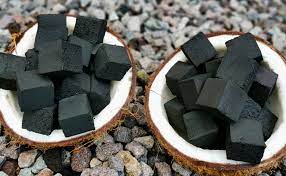Exploring the World of Hookah Charcoal Varieties
Hookah, also known as shisha, narghile, or waterpipe, has been a popular social pastime for centuries. One critical component that significantly influences the hookah smoking experience is the charcoal used to heat the flavored tobacco or herbal molasses. This article comprehensively overviews various hookah charcoal types and their distinctive properties.
Quick Lighting Charcoal: For the Fast and Easy Experience
Quick-lighting charcoal is a prevalent choice among casual hookah smokers due to its convenience and rapid ignition. These briquettes are typically coated with potassium nitrate or sulfur accelerants, enabling them to ignite swiftly upon exposure to an open flame. However, the convenience of quick-lighting charcoal comes at a cost, as the chemicals may impart undesirable flavors to the smoke and pose potential health risks.
Natural Coconut Charcoal: A Sustainable and Eco-Friendly Option
Natural coconut charcoal is an optimal choice for those who prioritize environmental sustainability and a clean smoking experience. Produced from compressed coconut shells, this type of charcoal is considered eco-friendly, as it utilizes a waste product and does not contribute to deforestation. Coconut charcoal is renowned for its consistent heat output, long burn time, and minimal ash production. Furthermore, it is free of chemical additives, ensuring a purer and more enjoyable flavor profile.
Bamboo Charcoal: Embracing the Traditional Alternative
Bamboo charcoal has long been a favored choice in hookah, particularly in Asian countries where bamboo is abundant. This type of charcoal is crafted from carbonized bamboo, which imparts a distinct aroma to the smoke. Bamboo charcoal is known for its high calorific value, efficient combustion, and minimal smoke production. However, it may take longer to ignite than other charcoal types, and its heat output can be less consistent.
Lemonwood and Olive Wood Charcoal: The Artisanal Preference
Lemonwood and olive wood charcoals are often considered the connoisseur’s choice for hookah smoking due to their distinct aromatic properties. Both types of charcoal are crafted from carbonized wood, with lemonwood charcoal deriving from citrus trees and olive wood charcoal originating from olive trees. These charcoals burn at lower temperatures than other varieties, imparting a subtle flavor to the smoke many aficionados appreciate. However, these premium charcoals can be more expensive and challenging to find compared to different types.
Japanese Silver Charcoal: The Epitome of Refined Smoking
Japanese silver charcoal, also known as “silver tab” or “silver flake” charcoal, is a unique and sophisticated option for hookah enthusiasts. Made from a blend of high-quality woods and coated with a thin silver layer, this charcoal is slow-burning and provides a consistent heat output. The silver coating prevents direct contact between the charcoal and the tobacco, resulting in a smoother, more delicate smoke. Despite its exceptional properties, Japanese silver charcoal is relatively rare and expensive.
Weighing the Pros and Cons: Making the Right Choice
Selecting the appropriate hookah coal depends on personal preferences and priorities. Casual smokers may appreciate the convenience of quick-lighting charcoal, while more experienced enthusiasts may opt for eco-friendly alternatives like coconut or bamboo charcoal. For a truly luxurious experience, premium charcoals like lemonwood, olive wood, or Japanese silver charcoal can elevate the smoking session to new heights.
In conclusion, various hookah charcoal types exist, each with unique properties and characteristics. By understanding the advantages and disadvantages of each, hookah enthusiasts can make informed decisions to maximize their smoking experience. Whether prioritizing convenience, sustainability, flavor, or luxury, a charcoal type is tailored to suit individual preferences. By experimenting with different charcoals and considering the abovementioned factors, hookah smokers can discover the ideal combination that aligns with their tastes and enhances their overall enjoyment.

